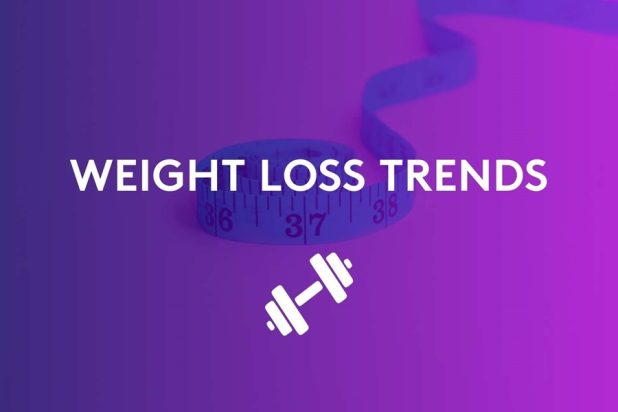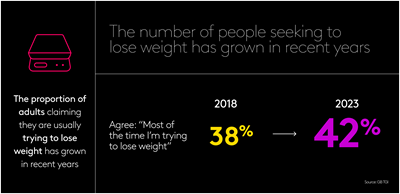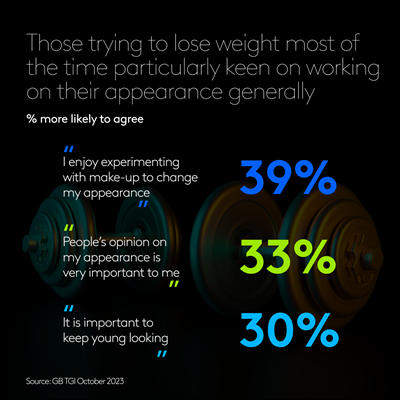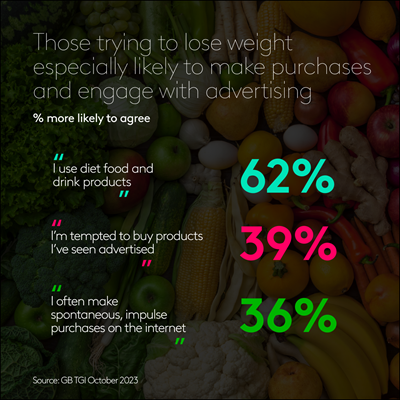As a plethora of new anti obesity drugs are launched this year, we explore how adults today are feeling about weight loss
Percentage of adults claiming they are trying to lose weight has grown in recent years

This year has seen a new wave of anti-obesity and weight loss drugs launched. Pharma firms are keen to cash in on something they see as being potentially hugely commercially lucrative. This has been most dramatically highlighted by the case of Danish firm Novo Nordisk bringing a new drug to market that seems to support considerable weight loss, making the firm’s market value skyrocket, taking it from being a small producer of diabetes drugs to becoming Europe’s most valuable company.
But how do Britain’s consumers today feel about their weight and how has this been changing in recent years? GB TGI data reveals that the proportion of adults who say most of the time they are trying to lose weight has risen since the pandemic.

It may come as something of a surprise that age and gender are not especially strong signifiers of those trying to lose weight. However, compared to other western European nations, adults in Britain are considerably more likely to claim they are seeking to lose weight most of the time. Britain’s figure of 42% is considerably higher than Germany’s 20%, Spain’s 29% and, to lesser extent, France’s 36%.
There is a wider sense among many of Britain’s adults that they are not looking after themselves well enough, with the proportion who claim that because of their busy lifestyle they don’t take care of themselves as well as they should rising from 34% in 2018 to 39% today.
Those who claim they are trying to lose weight most of the time are particularly likely to be pre-occupied with their appearance and the opinions of others.

You would expect this audience to be particularly likely to buy diet and health-related food and drink products, which they are.
However, they are also more likely to make impulse purchases generally and to be especially receptive to advertising.
